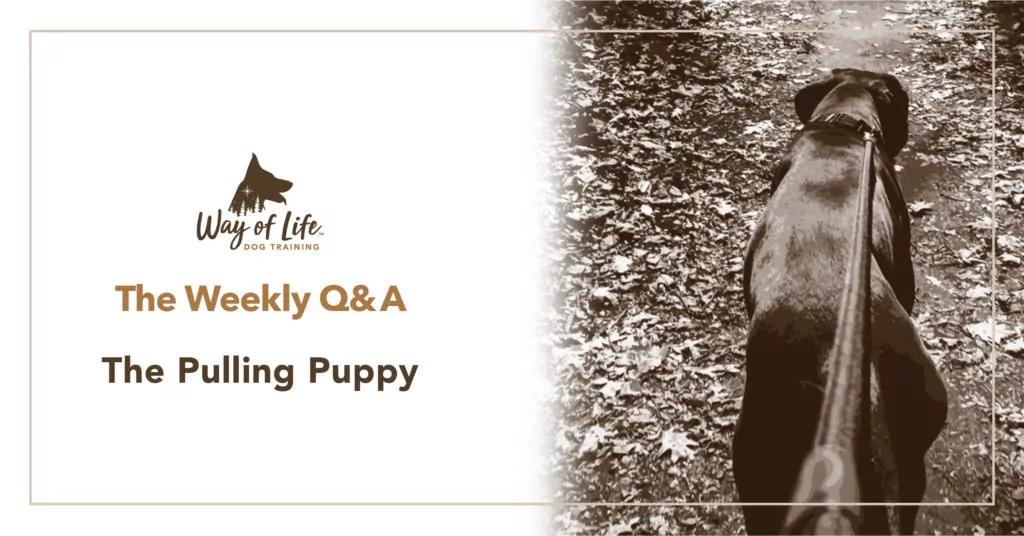
Q: Hi there! I have a puppy who is 9 months old. My boyfriend and I are having a lot of trouble with him in terms of he eats everything and anything and we don’t know what to do. Additionally, he is a massive dog, probably 90 pounds, and is a puller when we walk him so it is very difficult for me to control him when I walk him. I was wondering if you could help us out.
A: Thank you for reaching out to us about your large-breed puppy. It can be challenging enough working with a pulling dog but that frustration is compounded when dealing with such a large animal. I hope the following comments help you remedy your situation. I will touch on your dog eating things, the matter of pulling on leash, and the importance of managing as opposed to training young dogs.
Let’s talk first about the very frustrating and potentially dangerous matter of a dog vacuuming whatever is on the ground. Sure, dogs should have a healthy food drive but that’s not what we’re dealing with here. When dogs are obsessed with what’s on the ground, consuming anything they come across, this suggests stress that the dog is attempting to soothe through food. To make matters worse, owners often grab things out of the mouth of the dog and get into arguments over these coveted objects. The key is to understand and work with the stress powering the behavior.
Pulling on leash is another stress behavior, another indication of anxiety and agitation. Of course, dogs need to be trained on the leash, learning to walk with us safely and with engagement. But walking nicely on lead is not only a matter of skill, it also reflects where the dog is in terms of mental and emotional health and in their bond with their person. Loose leash walking is as much an attitude as it is a skill.
While your dog is more a teen than a puppy at this point, that does not mean that you don’t need to go back to rearing foundations with him so that you can work on these behavioral issues. When it comes to a growing puppy and adolescent dog, I can’t stress enough the importance of managing the dog and not just relying on training the dog.
In our view, it’s the way of life that does much of a dog’s teaching. When you are not conscious of your way of life, and don’t manage your dog’s life carefully, it shows up in behavioral issues like pulling and obsession with things. Instead of expecting puppies and growing adolescents to display wisdom and exercise self-control, we do the work of setting them up to succeed. This includes attending to all aspects of their way of life, which include but are not limited to, training.
For more pointers on raising sound, strong, and spirited pups, access The Way of Life Puppy Primer: Priorities for a Great Puppy Start.